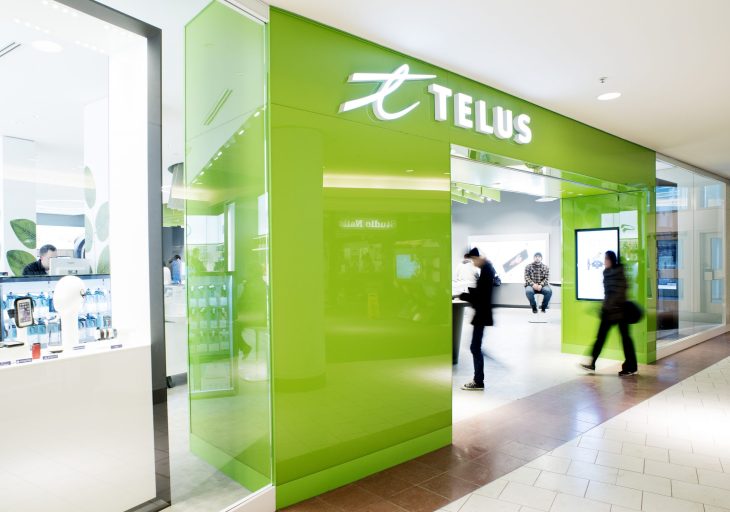
Company said two recent ISP acquisitions will help deliver on its home security business
By Ahmad Hathout
VANCOUVER – Telus executives said today they are “bullish” on the revenue generation that connected devices will deliver, especially as 5G wireless connectivity becomes more of a mainstay.
The company reported a 16% increase in its connected device base – and year-over-year growth of 30.9% — as it added 106,000 new devices in the fourth quarter of 2022 for a total of 2.5 million.
Despite the growth, Telus CEO Darren Entwistle told investors on the company’s quarterly conference call that “it still has not yet scaled sufficiently.
“There’s tremendous upside on that front, still to be harvested, which I think will be aided and abetted by what we’re doing on the 5G front and product development that leverages 5G bandwidth in that regard,” he added.
The company has been working to connect various sectors of the economy, including smart agriculture, electric vehicles and its big health division – examples of opportunities that the company says it sees generating significant revenue generation going forward.
“We are very bullish on [internet of things] connected devices and actually the industry solutions capabilities that will ride on top of that connected device and connectivity capability,” said Navin Arora, the company’s executive vice president of business solutions. “This is a meaningful nine-figure business for us; it has double-digit growth on the IoT and industry solutions side and we’re getting some good traction in the market.
“We definitely like the economics of this business.”
Years ago, the company separated its smartphone and connected device base on its balance sheet, as competitors kept the two mixed. That separate figure could tell the story in future reports.
The company also added colour to its recent acquisitions of small internet service providers, Altima and Start.ca, which were integrated into the company’s base in June 2022 and last month, respectively.
“We have been doing small, tuck-in acquisitions in specific areas where we competed for a number of years — these are no different,” said Zainul Mawji, executive vice president and president of consumer solutions, a division that was created last month.
“We have a very significant and growing smart home security business as an example,” Mawji added. “These particular acquisitions are helping to advance our capabilities in that area, so they’re relatively consistent with these types of acquisitions we’ve done in the past in Ontario and nationally.”
The company added 28,000 security customers in the period compared to the equivalent quarter last year, down 9.7%. Over that same period, it added 112,000 new mobile phones, which was flat year-over-year; 42,000 in new internet adds was up 5%; 17,000 television customer connections was down 5.6%; and voice losses were down 60% to 4,000.
Its total security customer base, as of the end of last year, was 978,000, up 21.6% over the comparable period; 9.7 million on mobile, up 4.3%; 2.4 million on internet, up 6.3%; 2.47 million on connected device, up 15.7%; and residential voice was down 2.4% to 1.1 million.
The total of 301,000 new additions across its segments contributed to its strongest fourth quarter on record, the company said.
Over the same period, mobile network revenue was up 6.5% to $1.7 billion, fixed data services was up 5.9% to $1.12 billion, and home phone revenue was down 6.3% to $194 million. Average revenue per user on mobile was up 2.2% to $58.69 and monthly churn – the rate subscribers leave – was up to 1.22% from 1.04% compared to the comparable period.
Revenues were up 12.6% in the three months through December 31 to roughly $5 billion compared to the same period last year. However, the company saw a 60% decline in net income to $265 million, attributed to factors including higher goods and services purchased, employee benefit expense and depreciation and amortization of assets.
Earnings before interest, taxes, depreciation and amortization decreased by 15% to $1.6 billion compared to the same quarter last year, which was when it absorbed a one-time benefit from the sale of its financial solutions business for $500 million.
The company also announced today its new president of the health division, Sid Kosaraju.
“With more than 20 years of global experience leading organizations with a focus on innovative healthcare technology and services, Sid is exceedingly well-positioned to lead the ongoing evolution of TELUS Health,” said Entwistle in a statement. “Indeed, leveraging his tremendous expertise, Sid will drive product innovation, distribution strength and an engaged culture that puts customers first across our healthcare business. Under Sid’s stewardship, we will accelerate our transformative strategy of utilizing data analytics and dynamic insights to revolutionize access to advanced healthcare services, including data-driven preventative health and wellness solutions and enable remarkable health experiences for the benefit of the clients and individuals we serve.”



